Kim Yong-chol: North Korea leader Kim Jong-un's right hand man
- Published
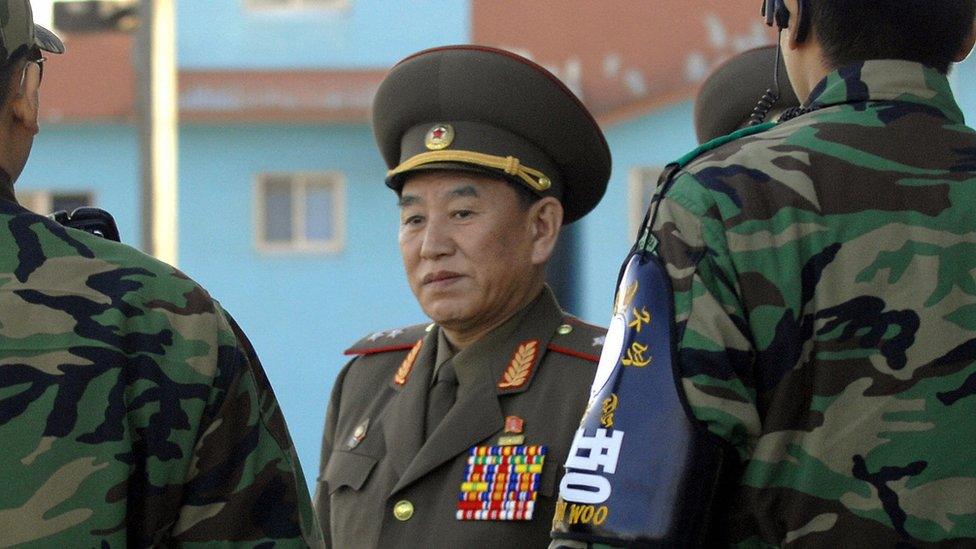
General Kim Yong-chol is a controversial but key figure in North Korean diplomacy
North Korean general Kim Yong-chol is reportedly heading to Washington DC via Beijing as part of preparations for a second summit between North Korea and the United States.
The General's trip to the US continues a series of remarkable developments after a year of surprises surrounding Korean diplomacy in 2018.
He is often referred to as Supreme Leader Kim Jong-un's right-hand man and is notionally forbidden to travel to the US, having been twice sanctioned by Washington.
But he has been at his leader's side at key summit meetings in 2018 and 2019, and his second visit to America this week highlights his importance to Pyongyang's diplomatic efforts.
During his time as North Korea's military intelligence chief, Gen Kim was accused of masterminding attacks on the South Korean warship Cheonan and on Yeonpyeong Island in 2010.
He is also linked to the cyber-attack on Sony Pictures in 2014 and led the country's delegation to the 2018 Winter Olympics closing ceremony in South Korea's Pyeongchang.
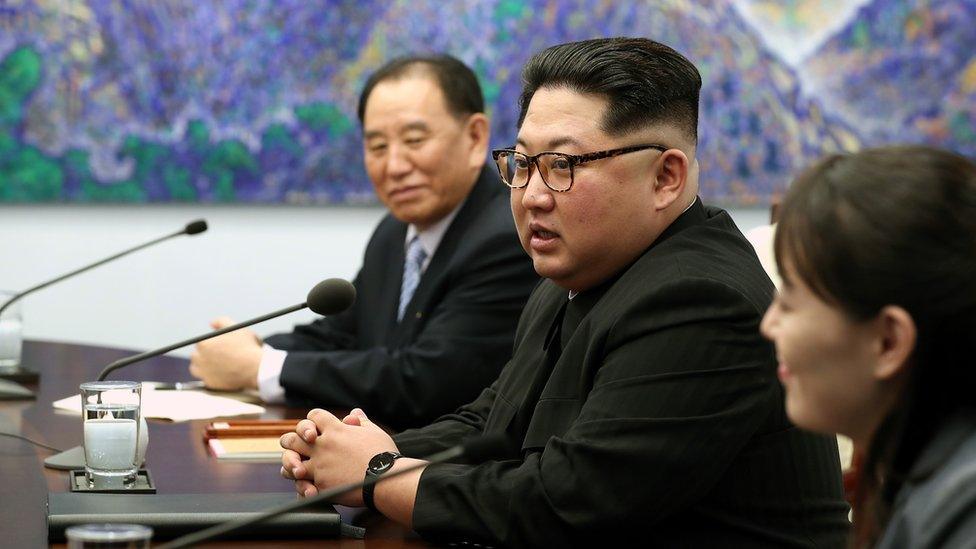
General Kim is his Supreme Leader's right hand man at the Inter-Korean Summit in April
Who is General Kim?
General Kim Yong-chol emerged as a key player in North Korean diplomacy in 2018.
Despite having the same surname, he is not related to the country's Supreme Leader.
He was at Kim Jong-un's side in all of his high-profile summits since 2018, including the June summit with Trump in Singapore and the North Korean leader's latest visit to Beijing in January 2019.
He was also a member of the welcoming party for US Secretary of State Mike Pompeo's visits to Pyongyang in May and October 2018, and met Mr Pompeo and Mr Trump when he visited the United States in June before the first North Korea-US summit.
Amid stalled talks on denuclearisation, another meeting between Kim Yong-chol and Mr Pompeo was planned in New York for November, but was cancelled abruptly.
The former spy chief's current official position is vice-chairman of the Central Committee of the Workers' Party of Korea, but he rose to prominence as Pyongyang's chief military negotiator during inter-Korean talks between 2006 and 2008.
He later served as the director of the General Reconnaissance Bureau, tasked with cyber-warfare and gathering foreign intelligence, from 2009 to 2016.
In 2016, he took charge of the United Front Department, the civilian intelligence agency which supposedly operates pro-North Korean groups in South Korea and handles inter-Korean affairs.
Soon after this appointment, however, he was reportedly sent for "ideological re-education" as punishment for an "overbearing attitude", according to South Korean daily JoongAng Ilbo.
He retained his posts despite the punishment, and his rise to prominence in 2018 shows he is now clearly very much in favour and a valued adviser to Kim Jong-un.
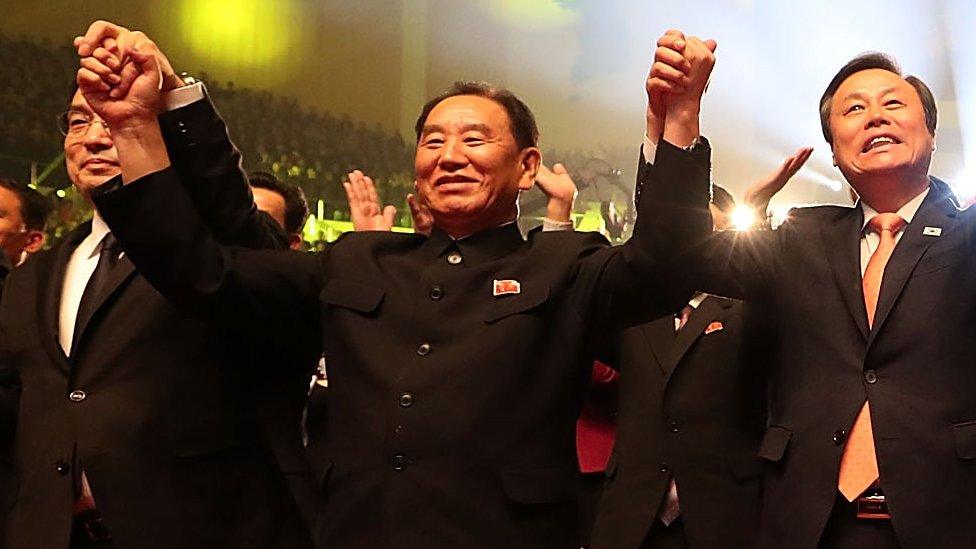
Kim Yong-chol celebrates the performance of a South Korean art troupe in Pyongyang
A controversial figure
Gen Kim's re-emergence in 2018 was initially met with hostility in South Korea, where he's accused of being a key figure in the 2010 sinking of the South Korean naval corvette Cheonan.
North Korea vehemently denies any involvement in the torpedoing of the ship, in which 46 sailors died.

The Cheonan naval corvette was sunk by a torpedo
He was also reported to be involved in the 2014 Sony hack in response to the comedy film The Interview, which mocked Kim Jong-un.
Gen Kim's alleged role in past events led to protests from conservative forces in South Korea before the 2018 Winter Olympics when it emerged that he would visit.
"We absolutely oppose a visit to the South by Kim Yong-chol, the main culprit of the Cheonan's sinking," said Kim Sung-tae, then floor leader of the opposition Liberty Korea Party. The party's statement also said that Kim Yong-chol deserved "death by beating" and called on the government to block the visit.
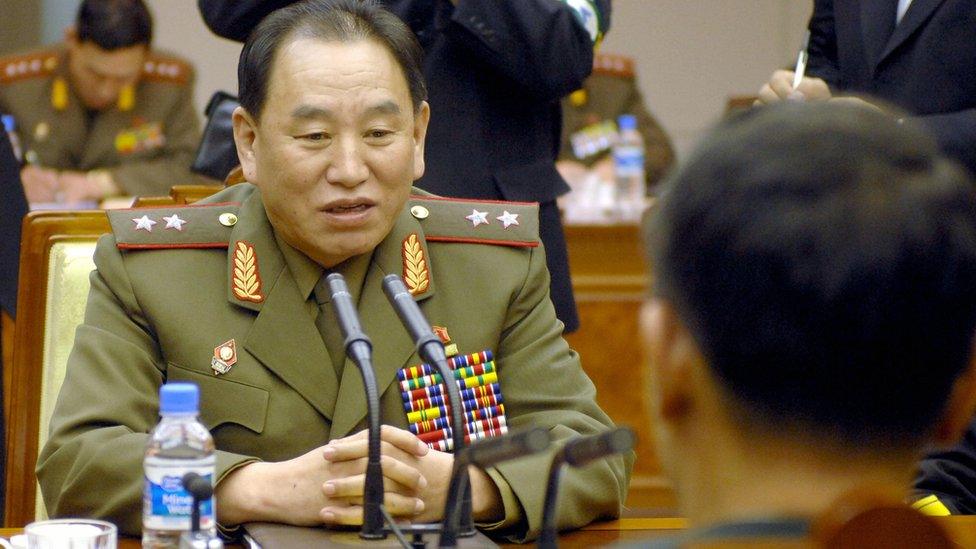
Kim Yong-chol led North Korea's delegation to the Winter Olympic closing ceremony
However, South Korea's Unification Minister Cho Myoung-gyon stated that in the name of the relaxing of tensions between the two Koreas, there would be no restrictions on his travel for the Olympics.
He has since stood on South Korean soil for a second time, crossing the border with Kim Jong-un as part of the inter-Korean summit delegation in April 2018.
BBC Monitoring, external reports and analyses news from TV, radio, web and print media around the world. You can follow BBC Monitoring on Twitter, external and Facebook, external.
- Published21 February 2018
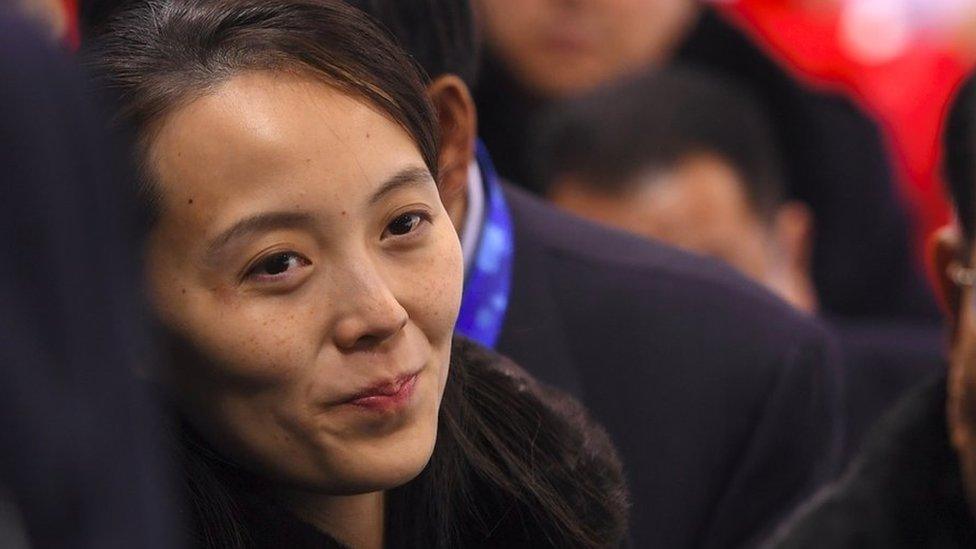
- Published20 February 2018
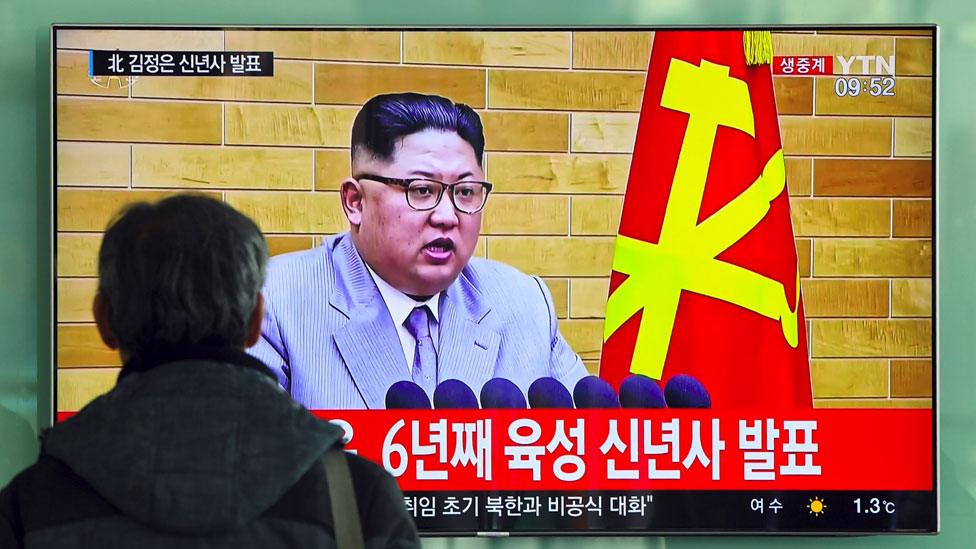
- Published13 February 2018
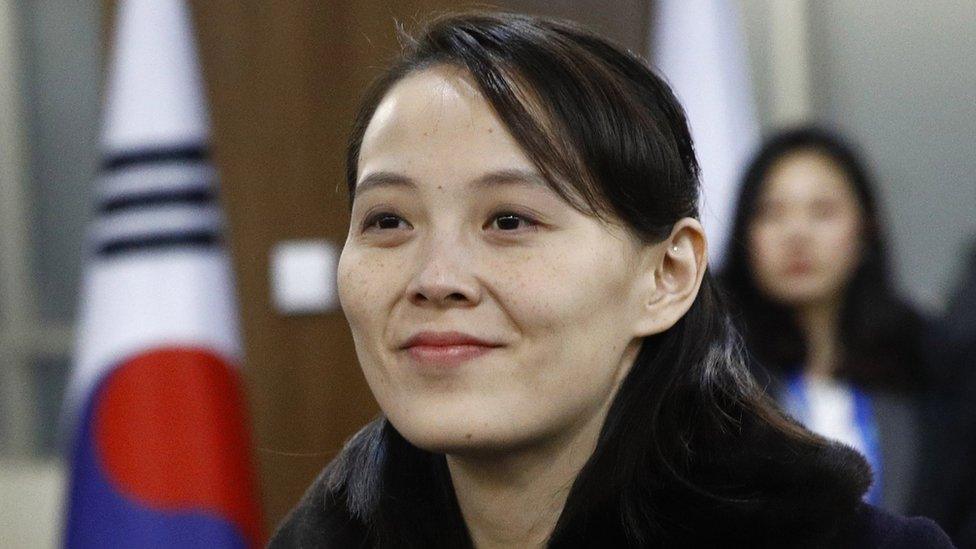
- Published9 February 2018
